I Am Not Your Negro Blu-ray Movie
HomeI Am Not Your Negro Blu-ray Movie 
Magnolia Pictures | 2016 | 94 min | Rated PG-13 | May 02, 2017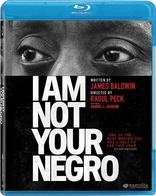
Movie rating
7.3 | / 10 |
Blu-ray rating
| Users | 0.0 | |
| Reviewer | 4.5 | |
| Overall | 4.5 |
Overview
I Am Not Your Negro (2016)
Writer James Baldwin tells the story of race in modern America with his unfinished novel, Remember This House.
Narrator: Samuel L. JacksonDirector: Raoul Peck
| Documentary | 100% |
Specifications
Video
Video codec: MPEG-4 AVC
Video resolution: 1080p
Aspect ratio: 1.85:1
Original aspect ratio: 1.85:1
Audio
English: DTS-HD Master Audio 5.1 (48kHz, 24-bit)
Subtitles
English SDH, Spanish
Discs
Blu-ray Disc
Single disc (1 BD)
BD-Live
Packaging
Slipcover in original pressing
Playback
Region A (C untested)
Review
Rating summary
| Movie | 5.0 | |
| Video | 4.5 | |
| Audio | 4.5 | |
| Extras | 3.5 | |
| Overall | 4.5 |
I Am Not Your Negro Blu-ray Movie Review
Remembrance
Reviewed by Michael Reuben June 7, 2017James Baldwin is a unique figure in American literature. An African-American born in the era of segregation, he achieved prominence and respectability as an author of both fiction and non-fiction. His writings explored homosexuality long before the gay liberation movement. During the Sixties civil rights struggle, he became one of that cause's leading spokesmen, sufficiently influential that J. Edgar Hoover's FBI deemed him "a dangerous individual". So thorough was Baldwin's immersion in social causes that his literary reputation is inseparable from his stature as an activist. Capturing Baldwin's distinctive voice and piercing intelligence in a documentary presents daunting challenges, but director Raoul Peck (Lumumba) has succeeded with his Oscar-nominated film, I Am Not Your Negro (or "IANYN"), which Magnolia Home Entertainment has released on Blu-ray.
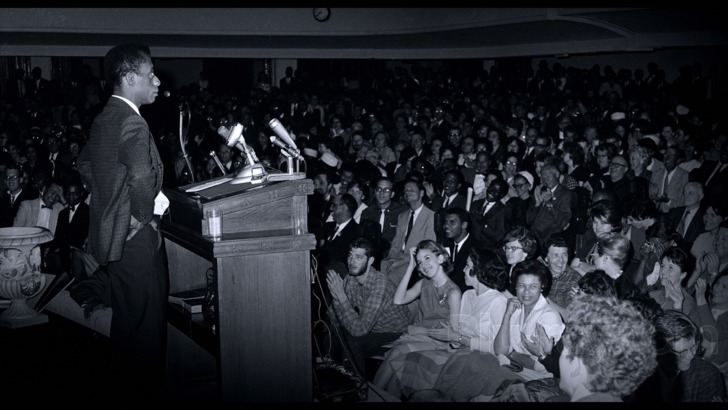
The film's title comes from a Baldwin quote, with the last word changed to accommodate contemporary sensitivities. The title was one of dozens that Peck considered during his decade-long effort to find a suitable framework for a film about Baldwin's life and work. The director found his touchstone in thirty pages of manuscript the author wrote for a never-completed book to be titled Remember This House. Baldwin wanted to explore the connections among three major figures of the civil rights movement: Medger Evers, Malcolm X and Martin Luther King. Despite their different circumstances (and, in the case of King and Malcolm X, strenuous disagreements), the three had one basic thing in common: At a young age, all three were assassinated for their activism. In a rueful passaged tinged with survivor's guilt, Baldwin reflects on the fact that he was older than all three and, under normal circumstances, should not have been expected to outlive the entire group.
At one level, IANYN can be viewed as Peck's attempt to complete Baldwin's project cinematically, interweaving selections from Baldwin's writings in voiceover (read by a quietly eloquent Samuel L. Jackson) with historical footage and photos of the three civil rights leaders and also of Baldwin in interviews and TV appearances. Peck's carefully constructed collage offers a resonant overview both of the struggle for African-American equality and of the oppression that prompted it. (The photos of lynchings are especially disturbing.) Baldwin's words echo throughout the presentation, probing, accusing, illuminating, always challenging the viewer with sharply phrased analysis. Whether debating Dick Cavett on his talk show or presenting a critical overview of American racial history at a Cambridge University debate, Baldwin remained a passionate advocate, his speeches informed by a sense of urgency that only increased as the years advanced.
While studying the three civil rights leaders, IANYN also paints a portrait of both their era and the history leading up to it. Peck and his team have combed through numerous archives and used all the resources of digital editing to assemble a pictorial history of America's racial conflict, in both the Sixties and preceding decades. They also jump forward to later developments, establishing visual and conceptual connections between events that Baldwin witnessed and others that followed his death in 1987, such as the Rodney King beating in 1991 (and ensuing riots in 1992), the Ferguson uprising in 2014 and the rise of the Black Lives Matter movement. Baldwin's words often seem to be commenting directly on these recent images, confirming the continued relevance of his insights (and, sadly, demonstrating how little some things have changed since his death).
IANYN also provides a biographical sketch of Baldwin, with focus on his formative years as a child and teenager in New York City and on the mentors who encouraged him. At age 24, the author relocated to Paris, where he spent most of the rest of his life, returning to America to lecture and give readings—and also to participate in history-making events like the March on Washington organized by Martin Luther King in August 1963. Though his writing was distinctively American, Baldwin's outsider's perspective informs both his work and Peck's evocation of this singular artist and intellectual. "It comes as a great shock", Baldwin says at one point, "to discover that the country, which is your birthplace and to which you owe your life and your identity, has not, in its system of reality, evolved any place for you." The three comrades who Baldwin (and now Peck) sought to honor assumed the burden of changing that condition, and it cost them their lives.
I Am Not Your Negro Blu-ray Movie, Video Quality 
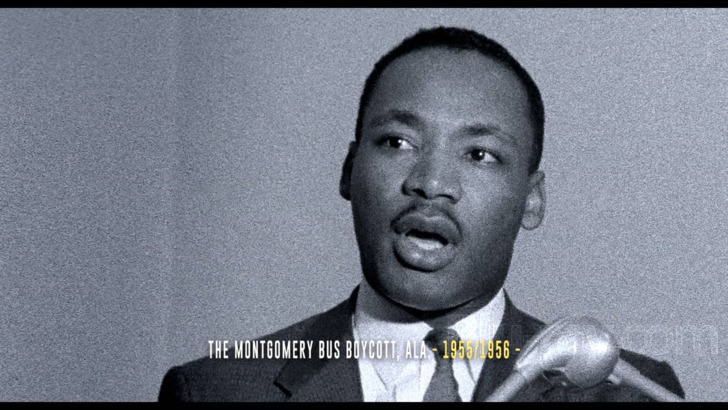
Although the credits for I Am Not Your Negro list multiple cinematographers, the bulk of the film has been constructed from archival sources: photographs, newsreel footage, kinoscopes and videotape. The quality of these sources varies, but digital tools have been used for both editing and enhancement (including, occasionally, colorization). Magnolia Home Entertainment's 1080p, AVC-encoded video does an excellent job of reproducing these varied sources with as much clarity and detail as each source will allow. With well-preserved photographs, the quality is particularly impressive, and even the up-converted TV footage from the Sixties and Seventies looks surprisingly good. Scenes shot specifically for the film (e.g., the ending) exhibit the superior clarity and detail that we have come to expect from digital photography. Magnolia has placed the film on a BD-50 and encoded it with a high average bitrate of 33.83 Mbps, which allows even the grainiest images to be reproduced without added artifacts.
I Am Not Your Negro Blu-ray Movie, Audio Quality 
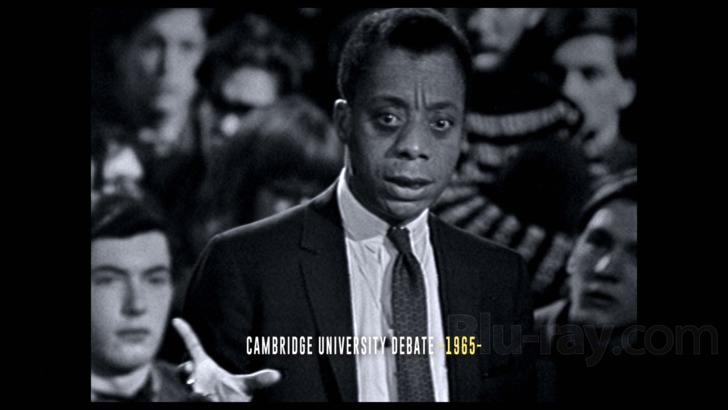
IANYN's 5.1 soundtrack, encoded on Blu-ray in lossless DTS-HD MA, carefully places Samuel L. Jackson's narration slightly in front of the screen, where it remains separated from the voices of speakers in the archival clips; the latter are anchored to the center channel. Peck and his sound team have also created a subtle mix of effects and ambient noise that accompanies and "opens up" some of the older footage: crowd murmurs, traffic, flames, a rocket engine blasting off with full dynamic range, and sickening whip blows (the latter accompanying excerpts from the 1927 silent adaptation of Uncle Tom's Cabin). IANYN's sound mix is a brilliant demonstration of how to apply the techniques of modern digital sound carefully and sparingly to enhance historical material. The blues-inflected score is by Russian composer Alexei Aigui, who has scored other films for director Raoul Peck, and the soundtrack also includes numerous original songs and performances by classic blues artists.
I Am Not Your Negro Blu-ray Movie, Special Features and Extras 
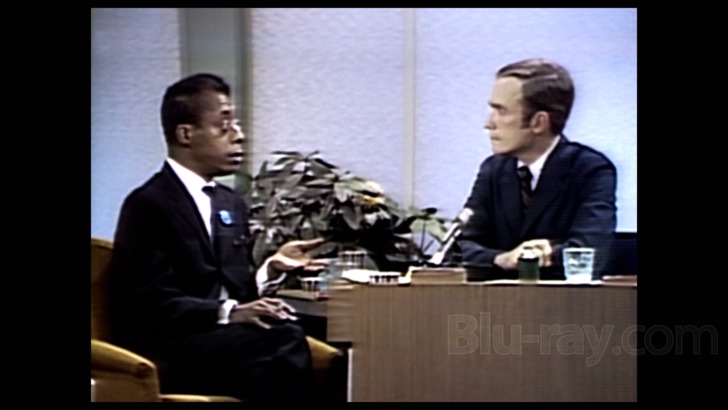
- Interview with Director Raoul Peck (1080p; 1.78:1; 57:55): In this lengthy and wide-ranging conversation, the director of IANYN discusses a variety of subjects including his personal connection to Baldwin's writings, his happy working relationship with the Baldwin Estate, the trial-and-error development of the film's distinctive approach, his Haitian origins, the connection between race and class and his personal sense of responsibility as a citizen and filmmaker.
- Q&A with Samuel L. Jackson (1080p; 1.78:1; 14:28): As Jackson himself concedes near the end, he talks more about his life and career than about IANYN in particular, but he does describe how he chose the tone and speaking style of his narration. An introductory note warns that sections of the audio are flawed, but the entire session is intelligible.
- Q&A with Raoul Peck (1080p; 1.78:1; 14:42): As thorough as the hour-long interview listed above may be, this session supplements it with the director's observations on Jackson's narration, comments on specific portions of the film and reflections on American political history since Baldwin's time.
- Video Photo Gallery (1080p; 1.78:1; 2:28): This photo array is presented differently from the usual stills gallery. Instead of succeeding each other one by one, the photos are spread out on a table, as the camera pans slowly from one to another.
- Also from Magnolia Home Entertainment: Trailers for Zero Days, Lo and Behold: Reveries of the Connected World and We Are X , along with an ad for The Charity Network and a promo for AXS TV.
- BD-Live: As of this writing, selecting this option returns the message: "Check Back Later for Updates".
I Am Not Your Negro Blu-ray Movie, Overall Score and Recommendation 
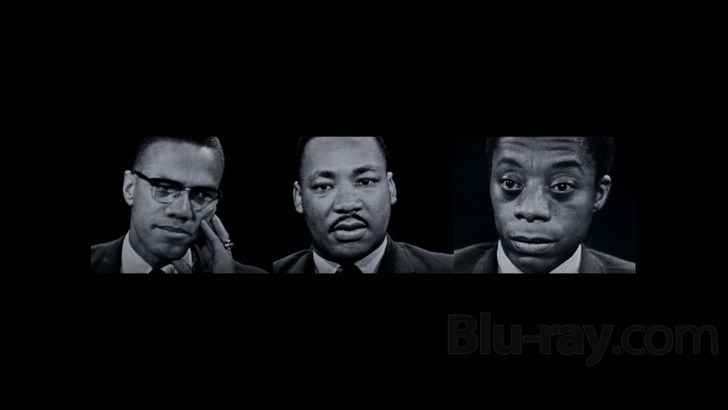
IANYN repays multiple viewings, because Peck has layered in so much imagery, and his
selections from Baldwin's writings are so provocative, that there is always something new to see
and hear (or to see and hear from a new perspective). It wasn't until I'd viewed the documentary several times that the inclusion of so many selections
from the films of Sidney Poitier, who was the leading black movie star of Baldwin's era (and, indeed, the only one regularly working), emerged as a
leading
theme of the author's analysis. His deconstruction of Poitier's screen image isn't systematic, but it's an effective demonstration
of Baldwin's ongoing interrogation of cultural images and their impact. His contrast of white and black
perspectives on The Defiant Ones is quietly devastating, one of
the
many arresting moments in this essential film. Highest recommendation.
Similar titles
Similar titles you might also like

Best of Enemies
2015

Fahrenheit 11/9
2018

Won't You Be My Neighbor?
2018

American Experience: Freedom Riders
2011

Waiting for "Superman"
2010

RBG
2018

An Inconvenient Sequel: Truth to Power
2017

Where to Invade Next
2015

The Look of Silence
2014

Amazing Grace
Aretha Franklin
2018

Bowling for Columbine
2002

This Is Cinerama
Deluxe Edition
1952

Capitalism: A Love Story
2009

Why We Fight
2005

Citizenfour
2014

The Gatekeepers
2012

The Fog of War: Eleven Lessons from the Life of Robert S. McNamara
2003

America: Imagine the World Without Her
2014

The Salt of the Earth
Le Sel de la Terre
2014

Fahrenheit 9/11
2004